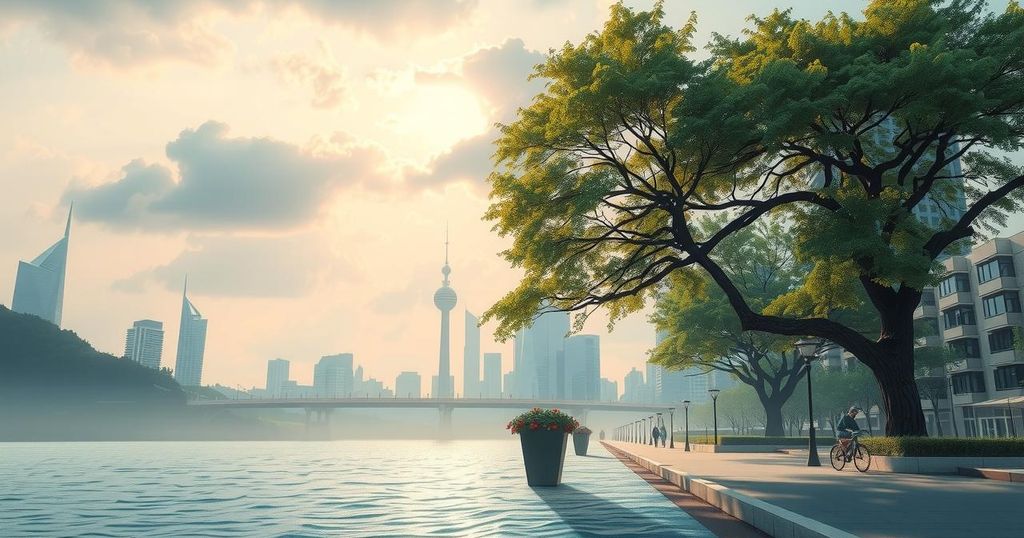Following a week of clashes in Goma, Democratic Republic of Congo, the city is experiencing a fragile calm. Although gunfire has diminished, the situation remains tense, with ongoing concerns over control and humanitarian issues. President Tshisekedi has vowed to respond decisively to the rebel threat, as regional accusations intensify and the humanitarian crisis deepens.
The eastern city of Goma in the Democratic Republic of Congo has experienced a slight return to normalcy after a week marked by intense clashes between government forces and M23 rebels, allegedly backed by Rwanda. Although active confrontations have subsided, the situation remains precarious, with sporadic gunfire reported and the presence of M23 rebels in nearby villages. Residents have started to emerge from their homes, and traffic in Goma is gradually increasing, indicating a cautious recovery.
Despite improvements, essential services such as electricity remain inconsistent, although the city’s water supply has been partially restored. Businesses are opening slowly, and residents have expressed relief that hostilities have ceased, although anxiety persists concerning the health risks posed by stagnant bodies left in the streets. The UN has noted a slight easing of tensions in Goma, but the overall environment remains fragile.
Concerns over control of Goma persist, with President Felix Tshisekedi announcing a comprehensive military response against the rebel forces, branded as terrorists. Regional dynamics complicate the situation, as leaders from Congo, Rwanda, and South Africa exchange accusations regarding involvement in the unrest. Allegations also implicate Uganda in supporting the M23 rebels, a claim that Kampala has denied, further highlighting the geopolitical tensions in the region.
The M23 launched a significant offensive recently, capturing critical areas of Goma, home to nearly 3 million residents, prompting Kinshasa to blame Rwanda for military support to the rebels. Calls for a ceasefire have intensified in the face of escalating casualties, with reports indicating nearly 100 fatalities over the past week. The ongoing conflict has resulted in mass displacements, with many seeking refuge in Rwanda, including personnel from international organizations.
Overall, while there are indications of a reluctant calm in Goma, the underlying issues of control, regional tensions, and humanitarian concerns remain unresolved, requiring keen attention from both local and international stakeholders.
Goma, the capital of North Kivu province in the Democratic Republic of Congo, has been a focal point of conflict involving governmental forces and various rebel groups. The recent surge in violence has been especially driven by the M23 rebels, resulting in significant humanitarian impacts and geopolitical complexities, particularly with the involvement of neighboring nations such as Rwanda and Uganda. The situation has prompted international stakeholders, including the UN, to monitor developments closely as tensions persist.
In summary, the situation in Goma has seen a tentative calm following intense conflict, yet the area remains embroiled in uncertainty regarding control and safety. The various regional accusations against one another highlight the complexities of the situation. With humanitarian challenges looming and calls for a ceasefire growing louder, immediate action is needed to address the ongoing crisis and restore stability to this conflict-affected region.
Original Source: www.aa.com.tr




